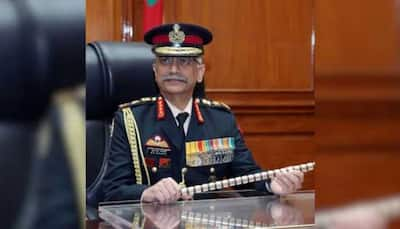New Delhi: In an age where conflict often plays out like viral entertainment and social media sentiment demands escalation over restraint, former Indian Army Chief General Manoj Naravane offers a reminder – war is not a cinematic climax. It is a human catastrophe.
Speaking in Pune at a defence and economic policy forum on May 11, General Naravane addressed the public discourse surrounding India’s recent military offensive – Operation Sindoor – and the subsequent decision to suspend further hostilities with Pakistan.
While many online commentators clamored for a “decisive finish”, Naravane asked, “At what cost?”
‘Not a Bollywood Movie’
“War is not romantic. It is not your Bollywood movie. It is serious business. A wise commander calculates the cost long before it becomes unbearable,” he said, addressing the nation’s growing appetite for spectacle.
The pragmatic reflection came just days after India’s tri-service strikes against terror infrastructure in Pakistan and Pakistan-occupied Kashmir and later on military bases across the border. Though the precision of the strikes shocked observers and altered strategic equations in South Asia, Naravane emphasised that the cessation of military operations was not a sign of retreat but of responsibility.
“It is not a ceasefire. It is a pause. One that allows us to weigh what truly matters – lives, stability and the long-term consequences of escalation,” he clarified.
The Human Toll
The general did not mince words about what is often left out of war coverage – trauma. While missiles and drones dominate headlines, the emotional wreckage lingers in silence.
“There are children who lose their parents. Civilians who spend the rest of their lives with PTSD. No camera shows that. But it is real,” Naravane said.
He stressed that behind every ‘strike’ is a ripple effect of lifelong scars, not only on soldiers but on border communities – scars that run deeper than any tactical victory.
First Offensive – Diplomacy
Though his credentials are steeped in military service, Naravane’s outlook champions dialogue over dominance.
“If ordered, I will go to war. That is my duty. But it will never be my first choice. Diplomacy must be,” he stated.
In an era where national security debates often polarise into ‘guns versus butter’, the former Army chief argued for strategic prudence, not emotional chest-thumping. He acknowledged the financial strain of defence investments but framed them as an insurance policy, not a sunk cost.
“A well-equipped military does not just respond to threats, it prevents them. Just like insurance, its value lies in deterring the accident before it happens,” he explained.
Strength Isn’t Always Loud
Naravane’s words serve as a quiet counter-narrative to the dominant noise demanding vengeance. He framed India’s actions as strategic deterrence, not a step away from confrontation but a step ahead of chaos.
“Pakistan got the message. Loud and clear. Their response was not negotiation, it was desperation,” he said, referencing Pakistan’s call to halt escalation after suffering operational losses.
Peace Is Strength So Is Perspective
As India stands at a geopolitical crossroads, Naravane’s insights urge citizens to look beyond the immediate drama and into the generational consequences of conflict.
“We must learn to resolve disputes at every level, not just between nations but within families, communities and states,” he said.
Stay informed on all the , real-time updates, and follow all the important headlines in and on Zee News.








